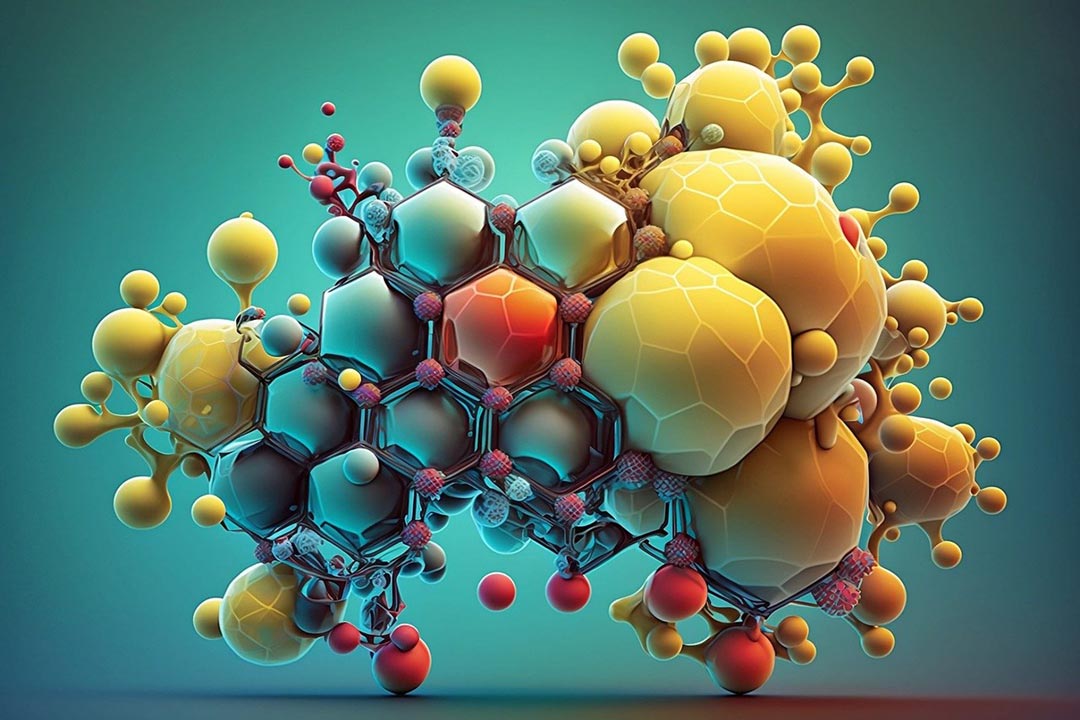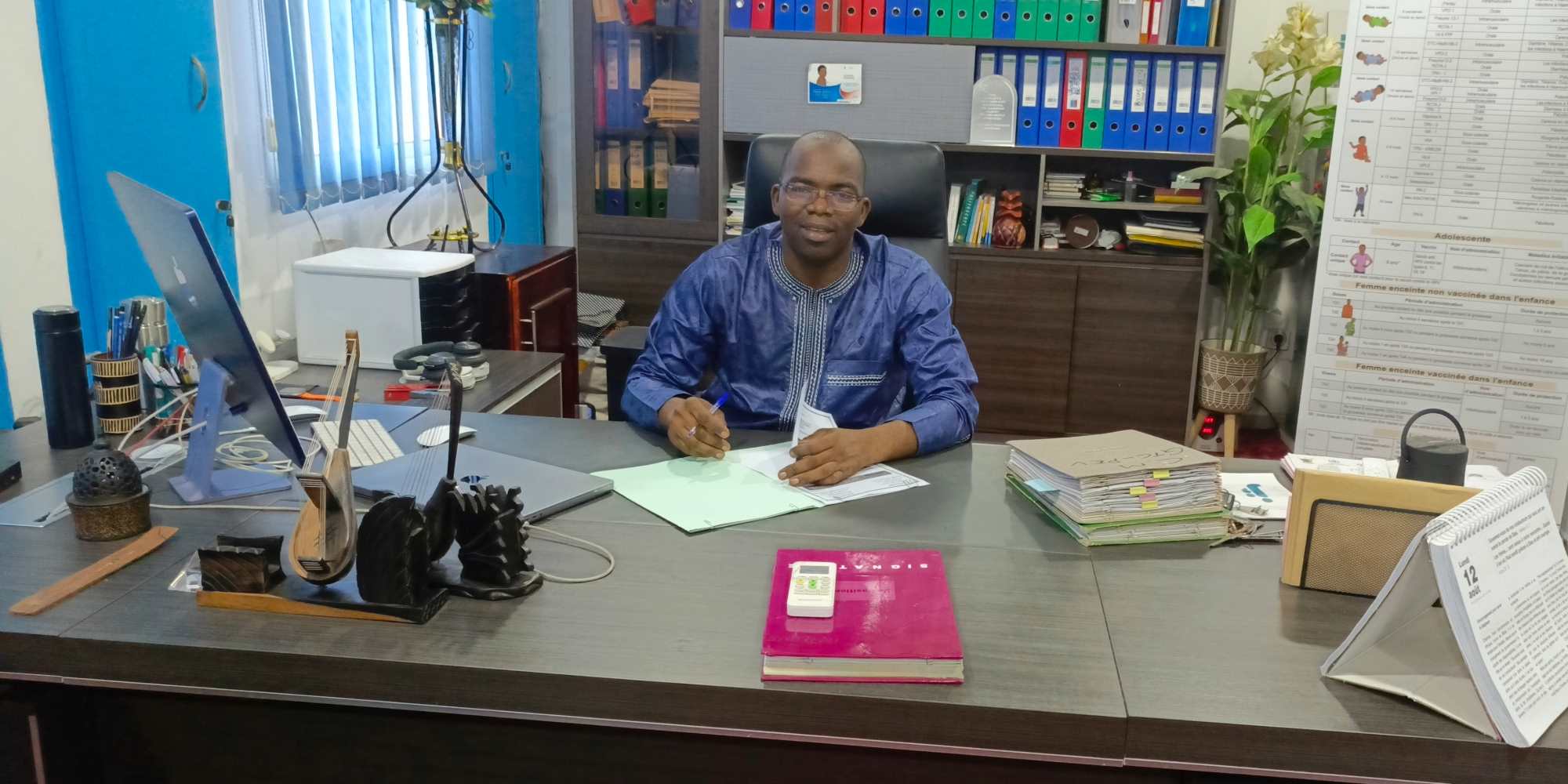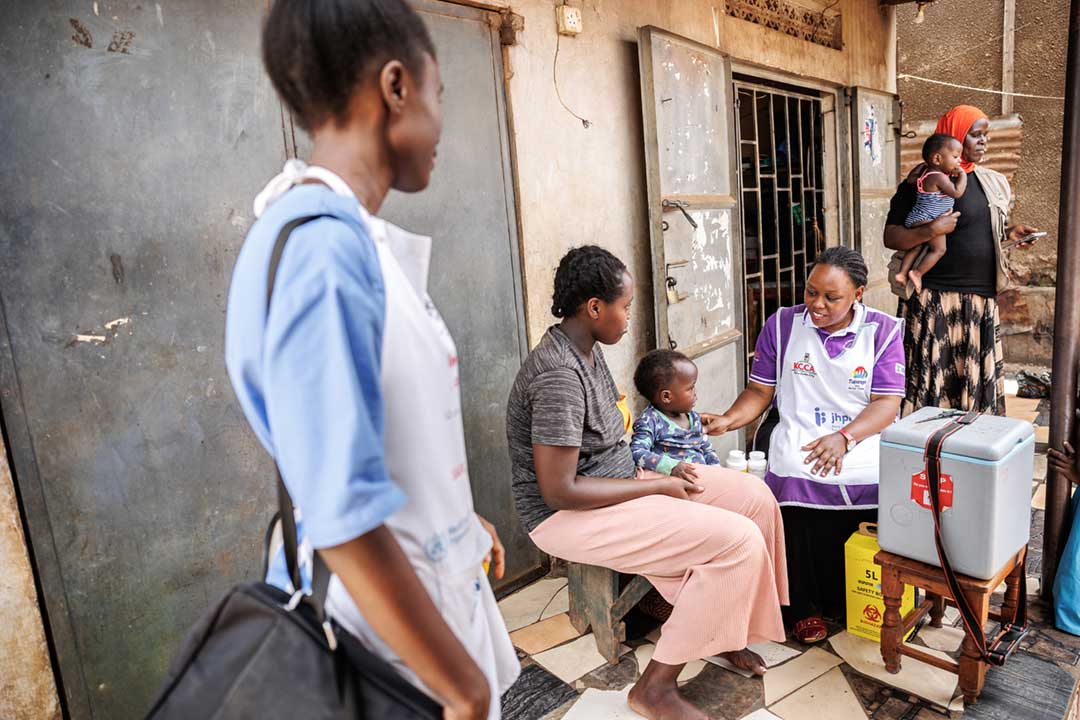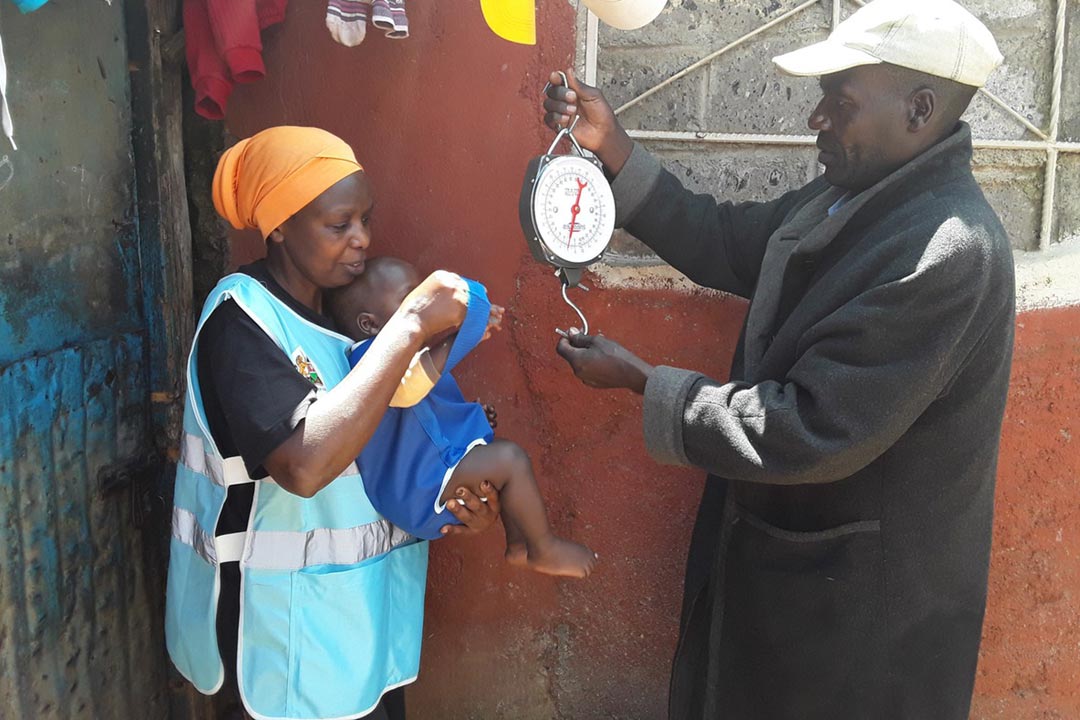Nana Taona Kuo, senior manager in the executive office of the U.N. Secretary-General for Every Woman Every Child.
We have made great progress to increase the survival and health of women and children over the past decade. We are reducing deaths of children under 5 faster than at any time in the past two decades, with 17,000 more children surviving each day, and deaths of mothers having been cut by almost half since 1990.
Immunization has played a key role in these outcomes, protecting people from some of the most devastating diseases and Gavi, the Vaccine Alliance has been at the forefront of these efforts. Gavi recently announced that half a billion children have been reached through Gavi-supported routine immunisation since 2000, resulting in 7 million lives saved. This is truly remarkable.

Outside a clinic in Nigeria. Credit: GAVI/Adrian Brooks
However, despite this progress there are still over 22 million children who do not receive the necessary vaccines and tomorrow in Berlin we have an opportunity to ensure that all children, no matter where they live, will be reached.
A fully resourced Gavi means that an additional 300 million children could be immunized, which translates into a powerful social and economic impact. Vaccines are one of the most cost-effective and essential interventions to advance global health. Supporting Gavi is a sound investment, rooted in partnership, accountability and innovation, and this Alliance is producing impressive results.
These are the same core pillars contributing to the success of our Every Woman Every Child movement, where Gavi has been a key partner and commitment maker for the past 5 years.
Launched in September 2010 by the UN Secretary-General, the Global Strategy for Women’s and Children’s Health (Global Strategy) and the work of over 300 partners has contributed to significant progress worldwide in reducing maternal and child mortality. Under the Every Woman Every Child movement, this strategy is helping to save the lives of millions of women and children, with over 400 commitments made from governments, civil society, the United Nations and the private sector.
This year the world will agree on a transformative agenda focused around sustainable development and climate change. This includes a new framework for action on the world’s development priorities, as well as a renewed vision to accelerate action on women’s and children’s health through an updated Global Strategy.
This renewed strategy will provide the overarching framework and common vision for women’s, children’s and adolescents’ health up until 2030, aligned with the Sustainable Development Goals (SDGs) and targets. It will have a focus on the hardest to reach and most vulnerable women and children, and will include integration with other sectors like education and nutrition. Led by countries, this renewed Global Strategy for Women’s, Children’s and Adolescents’ Health will help to deliver ambitious, innovative and inclusive action for the achievement of the SDGs, and showcase the added value and importance of partnerships like Gavi and Every Woman Every Child for saving lives.
As we begin this crucial year, strong and impactful commitments to Gavi will keep the momentum going and signal to political leaders that women’s, children’s and adolescents’ health must stay at the forefront of the development agenda.
We all must play our part to support this effort and continue to accelerate action to reach our goal of ending all preventable maternal, child and adolescent deaths within a generation. A pledge to Gavi means an investment in a healthy future – a future where every child gets to reach their potential.
——————————————————————————————–
Nana’s blog was kindly written in support of the Gavi pledging conference, which will take place on January 27th 2015, in Berlin.
To find out more about this opportunity to reach every child with life-saving vaccines, visit the event’s home page.







